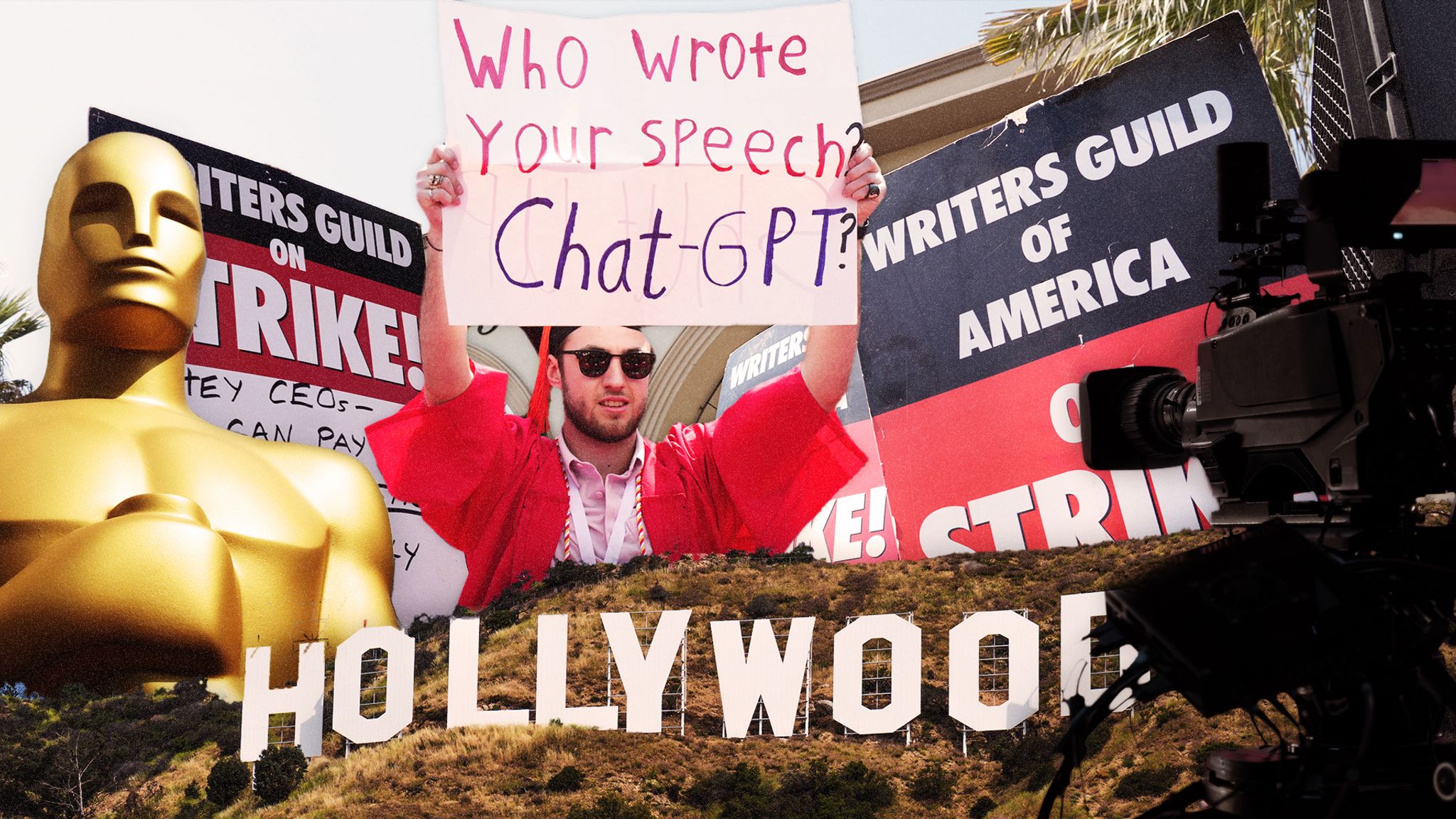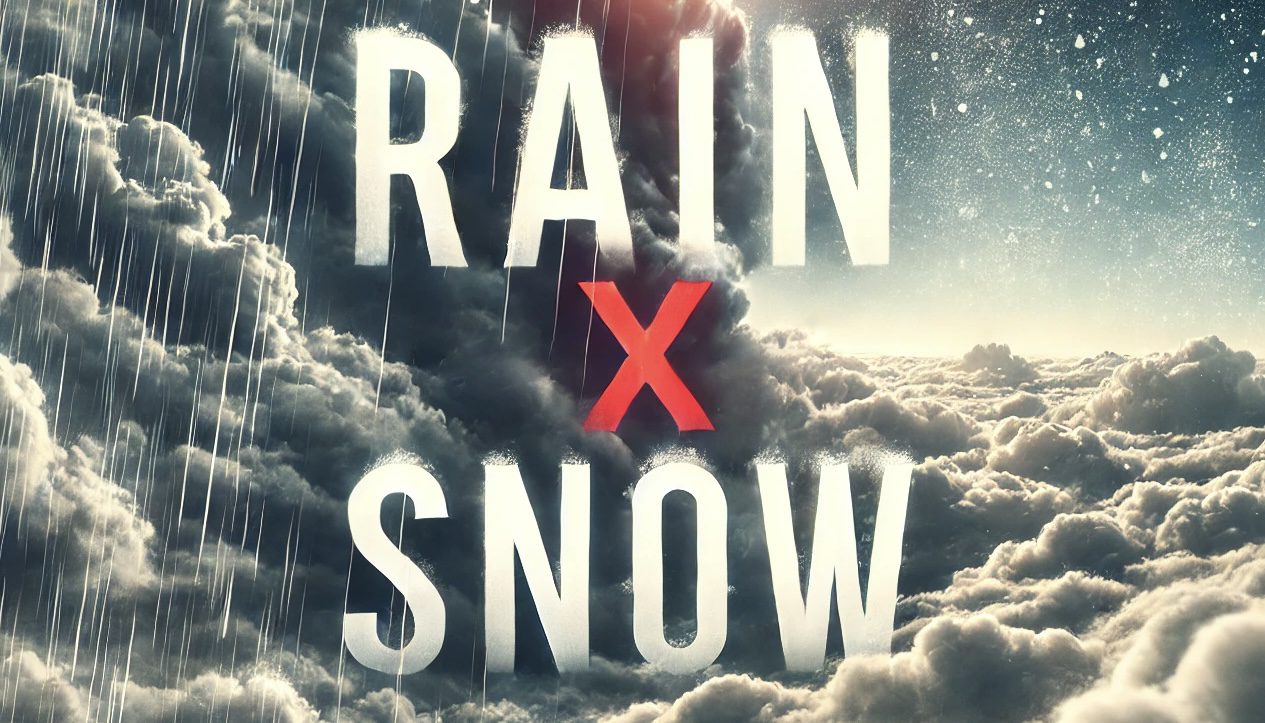Double Trouble In Hollywood: Writers And Actors Strike Brings Industry To Halt

Table of Contents
The Writers Guild of America (WGA) Strike: Core Issues
The WGA strike, which began in May 2023, represents a culmination of years of growing discontent among screenwriters. The core issues driving the strike are multifaceted and deeply rooted in the changing landscape of the entertainment industry.
Fair Wages and Residuals in the Streaming Era
The shift from traditional television models to streaming platforms has significantly altered the compensation structure for writers. The lucrative residual payments writers once received for reruns and syndication have largely disappeared in the streaming era. This change has drastically reduced writers' income, making it difficult for many to make a living.
The WGA's demands for fairer compensation structures include:
- Increased minimum pay rates for writers.
- A more equitable system of residual payments for streaming platforms, reflecting the widespread viewership and longevity of content on these platforms.
- Transparency in streaming viewership data to better inform compensation negotiations.
This fight for fair wages and residuals is central to the Hollywood strike and the future of screenwriting.
The Rise of AI and its Impact on Writers' Jobs
The WGA also expresses significant concern about the increasing use of artificial intelligence (AI) in writing and script generation. The union fears that AI could be used to replace human writers, undermining their creative control and job security.
- AI-generated scripts could lead to a devaluation of writers' skills and expertise.
- The use of AI raises concerns about intellectual property rights and the ownership of creative work.
- The potential for AI to homogenize storytelling and reduce creative diversity is a significant worry.
The WGA is demanding safeguards to prevent the exploitation of AI in screenwriting, ensuring that human writers retain control over their creative work and receive appropriate compensation.
Working Conditions and Minimum Staffing
The WGA's concerns extend beyond compensation to encompass working conditions. The union argues that long working hours and inadequate staffing levels are commonplace, impacting the quality of work and writers' well-being.
- Minimum staffing levels ensure adequate creative input and prevent overwork.
- Improved working conditions lead to better creative output and improved mental health for writers.
- Fair working conditions are essential for attracting and retaining talented writers in the industry.
These issues highlight the broader fight for fair treatment and sustainable working conditions within the entertainment industry.
The SAG-AFTRA Strike: Joining the Fight for Fair Compensation
Joining the WGA on the picket lines is SAG-AFTRA, representing actors and other performers. Their strike, which began in July 2023, shares many of the same concerns as the WGA strike, further amplifying the impact of the Hollywood strike.
Fair Wages and Residuals for Actors
Similar to writers, actors have seen their compensation significantly impacted by the shift to streaming. Traditional residual payments for reruns and syndication are severely diminished or nonexistent on streaming platforms, affecting actors' earning potential. SAG-AFTRA demands:
- Increased minimum wages to reflect the increased cost of living and the value actors bring to productions.
- Fairer residual payments for streaming content, ensuring actors share in the success of their work.
- Transparency in the use of actors' performances and images in the promotion and marketing of streaming content.
The fight for fair compensation is crucial for the long-term sustainability of actors' careers.
Self-Tape Auditions and Fair Use of AI
SAG-AFTRA also raises concerns about the increasing reliance on self-tape auditions, which often place undue financial and logistical burdens on actors. Furthermore, the union is deeply concerned about the use of AI in creating digital likenesses of actors and potential exploitation of their images without consent or compensation.
- Self-tape auditions can be costly and require actors to invest in equipment and resources.
- The use of AI to create digital likenesses of actors raises significant ethical and legal concerns regarding ownership and control.
- SAG-AFTRA seeks protections to ensure actors receive fair compensation for the use of their likeness and performances in AI-generated content.
These issues underscore the need for regulations and safeguards to protect actors' rights and prevent exploitation.
Protecting Actors' Rights and Health & Safety
SAG-AFTRA’s demands also focus on improving actors' overall working conditions and protecting their health and safety. This includes:
- Addressing safety concerns on film sets, ensuring safe working environments for all actors.
- Protecting actors from exploitation and unfair labor practices.
- Establishing clear guidelines and regulations to address the ethical implications of new technologies like AI.
The union's commitment to improving working conditions and protecting actors’ rights demonstrates their commitment to fair treatment for its members.
The Impact of the Double Strike on Hollywood and Beyond
The combined effect of the WGA and SAG-AFTRA strikes is causing a significant disruption across the entertainment industry and beyond.
Production Delays and Cancelled Projects
The double strike has brought virtually all major film and television productions to a halt. This has led to:
- Significant delays in the release schedules of numerous films and television shows.
- The cancellation of several projects, resulting in substantial financial losses for studios and production companies.
- A ripple effect across various related industries, impacting the entire entertainment ecosystem.
The financial impact of the Hollywood strike is substantial and continues to grow.
Economic Fallout for Support Staff and Local Economies
The strike's impact extends far beyond the actors and writers themselves. Countless individuals working in supporting roles, such as crew members, caterers, and transportation services, are experiencing job losses and financial hardship. Local businesses that rely on the film industry’s economic activity are also suffering.
- Caterers, drivers, and other support staff are losing income due to stalled productions.
- Local businesses, such as hotels and restaurants, are experiencing a decline in revenue.
- The economic impact extends throughout the communities where filming typically takes place.
The Long-Term Implications for the Entertainment Industry
The long-term implications of this Hollywood strike remain to be seen, but several significant changes are possible:
- Re-evaluation of compensation models for writers and actors in the streaming era.
- Increased scrutiny of the use of AI in entertainment and the potential for job displacement.
- Potential for increased unionization and a stronger collective bargaining position for creatives.
The outcome of the strike could significantly reshape the future of the entertainment industry.
Conclusion
The dual strikes by the WGA and SAG-AFTRA represent a pivotal moment in Hollywood history. The core issues of fair wages, residuals, the impact of streaming, and the ethical considerations surrounding AI are forcing a much-needed conversation about the future of the entertainment industry. The prolonged Hollywood strike highlights the precarious position of many creatives within a rapidly evolving landscape. The demand for fair treatment and sustainable working conditions is driving a crucial debate about the balance between artistic expression, technological advancement, and economic fairness.
Call to Action: Stay informed about the ongoing developments in the Hollywood strike. Follow updates from the WGA and SAG-AFTRA to understand the ongoing negotiations and their potential impact on the future of film and television. Let's hope for a swift resolution that addresses the crucial needs of writers and actors, ensuring a sustainable and equitable future for the entertainment industry. Understanding the complexities of this actors strike and writers strike is crucial for everyone invested in the future of Hollywood.

Featured Posts
-
 Logements Saisonniers A Biarritz Le Conseil Municipal Debat Du Budget Et De Sainte Eugenie
May 20, 2025
Logements Saisonniers A Biarritz Le Conseil Municipal Debat Du Budget Et De Sainte Eugenie
May 20, 2025 -
 Suki Waterhouses Surface Tour A Look Inside Her Disco Themed Shows
May 20, 2025
Suki Waterhouses Surface Tour A Look Inside Her Disco Themed Shows
May 20, 2025 -
 Big Bear Ai Bbai Stock Plummets Missed Revenue Leadership Shakeup
May 20, 2025
Big Bear Ai Bbai Stock Plummets Missed Revenue Leadership Shakeup
May 20, 2025 -
 Abidjan Accueille Le President Mahama Une Visite Axee Sur La Cooperation Et La Diplomatie
May 20, 2025
Abidjan Accueille Le President Mahama Une Visite Axee Sur La Cooperation Et La Diplomatie
May 20, 2025 -
 Addressing High Stock Market Valuations A Bof A Analysts Perspective
May 20, 2025
Addressing High Stock Market Valuations A Bof A Analysts Perspective
May 20, 2025
Latest Posts
-
 Kcrg Tv 9 10 Minnesota Twins Games On The Family Of Channels
May 20, 2025
Kcrg Tv 9 10 Minnesota Twins Games On The Family Of Channels
May 20, 2025 -
 Kcrg Tv 9 To Air 10 Minnesota Twins Games
May 20, 2025
Kcrg Tv 9 To Air 10 Minnesota Twins Games
May 20, 2025 -
 Impact Of A Wintry Mix Rain And Snow
May 20, 2025
Impact Of A Wintry Mix Rain And Snow
May 20, 2025 -
 Understanding A Wintry Mix Of Rain And Snow
May 20, 2025
Understanding A Wintry Mix Of Rain And Snow
May 20, 2025 -
 Preparing For A Wintry Mix Of Rain And Snow
May 20, 2025
Preparing For A Wintry Mix Of Rain And Snow
May 20, 2025
